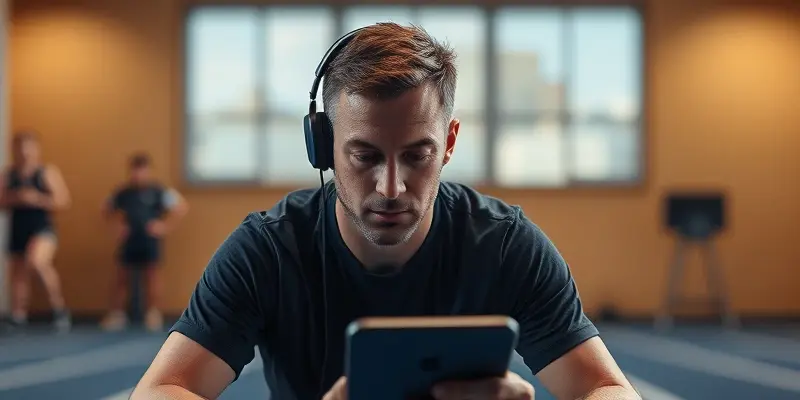Injuries are a reality of an active lifestyle—whether you’re just starting out or pushing for your personal best. But did you know that your mind can be as powerful as your muscles in the recovery process? With telehealth sports psychology, athletes of every level now have remote access to expert guidance. This modern approach can shorten recovery time, prevent re-injury, and keep you motivated even on tough days. Let’s explore how this approach can level-up your fitness journey.
What is Telehealth Sports Psychology?
Telehealth sports psychology connects you with licensed experts through secure video calls. This means you can get psychological support, tailored recovery plans, and motivation strategies from home, the gym, or wherever you feel comfortable. As technology advances, more fitness enthusiasts and athletes are using these services to enhance both mental and physical performance.
How Telehealth Supports Recovery from Injury
Beginner-Friendly Recovery Guides
Did you twist an ankle, pull a muscle, or just feel “off” after a tough session? Telehealth professionals customize recovery plans that go beyond just physical exercises:
- Goal-Setting: Break your rehab into achievable steps, so you see (and celebrate) progress.
- Visualization: Picture yourself returning to running, lifting, or training pain-free with proven visualization for healing techniques.
- Regular Check-Ins: Stay accountable and tweak your plan as you heal.
No athletic jargon—just clear, supportive instructions with expert guidance.
Common Injuries and Prevention
Sprains, strains, and overuse injuries are the bane of every athlete’s progress. Telehealth psychology doesn’t just address the aftermath—it’s about prevention, too:
- Warm-up/Cool-down Routines: Learn practical routines that protect your muscles and joints.
- Technique Correction: Get feedback on form to reduce injury risk.
- Balanced Training Loads: Avoid burnout and overtraining with science-backed advice.
Mental training can also keep you from repeating risky behaviors that lead to injuries in the first place.
Nutrition and Collaboration
While sports psychologists focus on the mind, they often work with online nutritionists to sharpen your recovery:
- Healing-Focused Nutrition Plans: Learn which foods speed up tissue repair and support an effective injury recovery checklist.
- Emotional Eating Support: Stay on track with eating habits, even when stress hits during recovery.
Motivation and Mindset: Staying Strong During Rehab
Psychological Techniques for Maintaining Motivation
Rehab isn’t just hard on the body—it can be tough on your spirit. Telehealth pros use:
- Cognitive Behavioral Strategies: Tackle negative thoughts like “I’ll never bounce back.”
- Guided Relaxation: Lessen pain and anxiety through relaxation and imagery exercises.
- Resilience Training: Build mental toughness to overcome setbacks.
Accountability and Regular Support
Weekly telehealth check-ins keep you motivated and less isolated—especially if you’re away from your team or workout buddies. They offer a safe space to share frustrations and wins.
Tools and Gadgets: Enhancing Physical and Mental Recovery
Have a foam roller, massage gun, or wearables? Telehealth experts guide you to use these gadgets effectively:
- Device Recommendations: Find out which tools help your specific injury recover faster.
- Adherence Tips: Stick to routines using reminders, tracking, and psychologist-backed motivation.
This mind-body combination helps you avoid both underuse (skipping recovery) and overuse (going too hard, too fast).
Why Go Virtual? The Benefits of Telehealth for Athletes
Why have so many athletes and fitness fans embraced telehealth?
- Accessibility: No long drives or waitlists—get support anywhere, anytime.
- Privacy: Discuss setbacks or mental struggles confidentially, in a space that feels comfortable.
- Ongoing Support: Maintain a relationship with your expert even as your needs evolve, building consistency and trust.
Practical Tips for Getting Started
Ready to try telehealth sports psychology?
- Find a Qualified Provider: Look for licensed psychologists or counselors with sports expertise—many are listed through athletic associations or reputable telehealth platforms.
- Set Clear Goals: Before your first session, jot down your challenges and objectives.
- Prepare for Your Session: Find a quiet space, test your tech, and bring any questions about your routine or recovery.
Conclusion
Recovery is more than just rest and rehab—it’s about harnessing the power of your mind and body together. Telehealth sports psychology puts expert support right at your fingertips, helping you heal faster, prevent future injuries, and reclaim your confidence. At GymPulse Club, we believe in supporting every step of your journey, both physically and mentally. Why not make telehealth part of your toolkit—and come back even stronger?
Ready to take your recovery to the next level? The future of injury prevention and recovery is here, and it begins with you.

